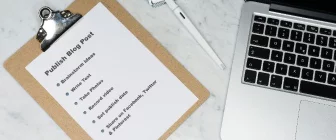
Do you ever wonder how search engines find your website? There’s this thing called metadata, mysterious to many internet users, that tells search engines what’s on your website.
Metadata is data that describes the content of your website.
The blurb that shows up on a search engine page and on social media is metadata, but other than that most non-programmers don’t see metadata.
Metadata makes it easy for your audience to find out what your website is all about and if you can provide the products or services they want.
There are 3 main components to metadata: title, description, keywords.

Search engines stopped using keyword metadata around 2009 as a ranking factor because spammy websites were using keywords unrelated to their content to get lots of page views. But the metadata title and description are still used as ranking factors.
Want to know how to create compelling Meta tags that will help drive traffic to your website? Here are some do’s and don’ts to keep in mind when writing them, direct from our team of pro metadata writers.
Title
Do: Keep it short and to-the-point. Search engine results pages will only display the first 55 characters, so make sure you don’t get cut off mid-sentence.
Don’t: Duplicate the title from other web pages within your site. The title should be unique to each page with a keyword describing its contents.
Description
Do: Use a call-to-action. Give readers a reason to view your webpage by telling them what they will get if they click on your link.
Don’t: Try to fool the viewer by stuffing tons of keywords into the description that are not relevant to the information they will find on the page. They will end up exiting your page immediately. Both the viewer and search engines will start to look at your website as one that can’t be trusted, hurting your online reputation.
Do: Provide a solution for the reader. In less than 155 characters, explain how your products or services can help with a problem your audience may have.
Keywords
Do: Use long-tailed keywords because these words have less competition and traffic, yet will direct more targeted Internet searchers to your website.
Don’t: Use generic keywords. While they get hundreds or thousands of searches, they are not specific to your webpage and could get lost in the shuffle with larger, more established websites.
While Meta tags alone won’t help your rank higher in the search engines, they will provide your audience with a snippet of what to expect from the webpage. Keep these tips in mind as you create interesting and valuable content for your audience, or hire a Crowd Content writer to create content with great metadata.
